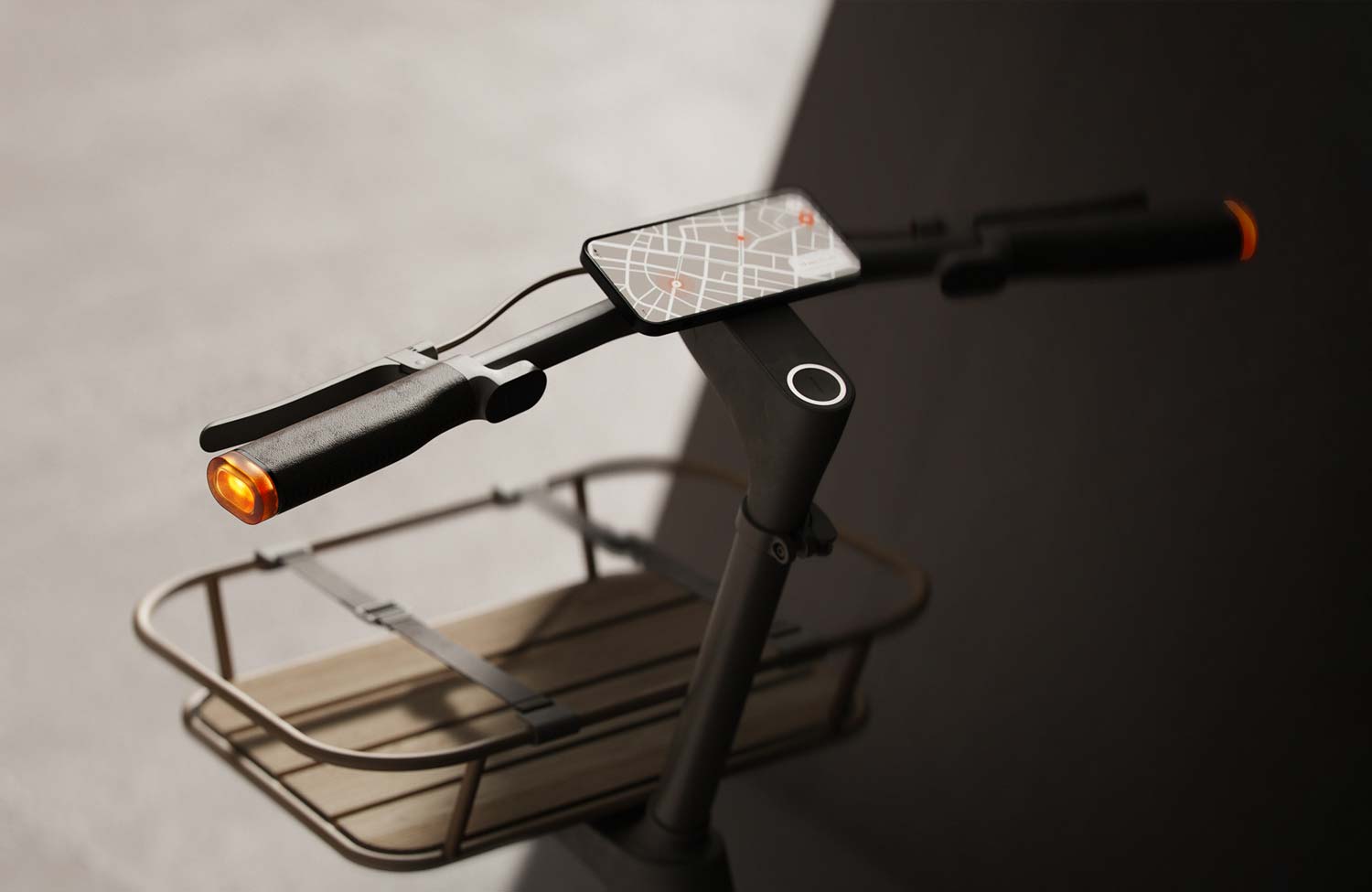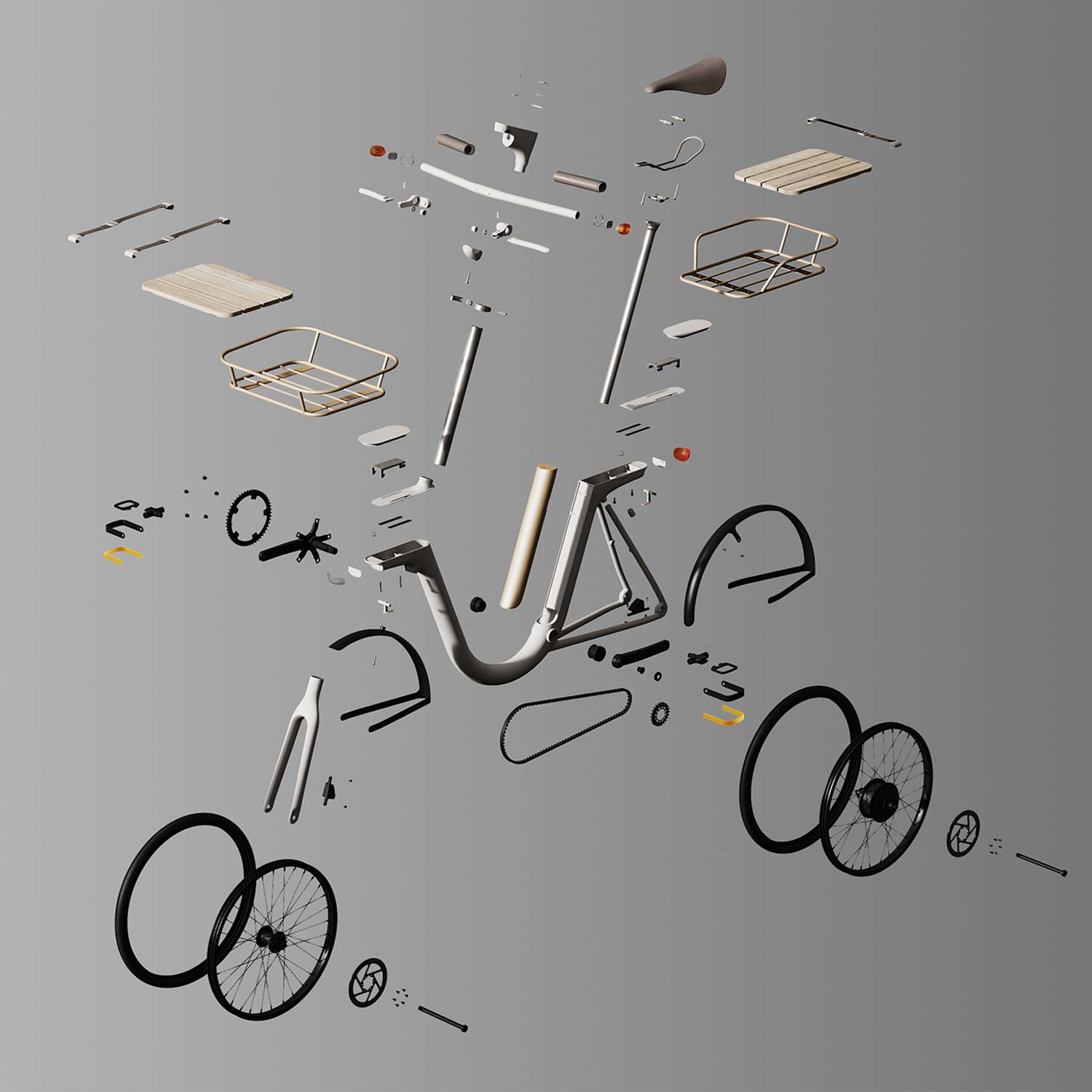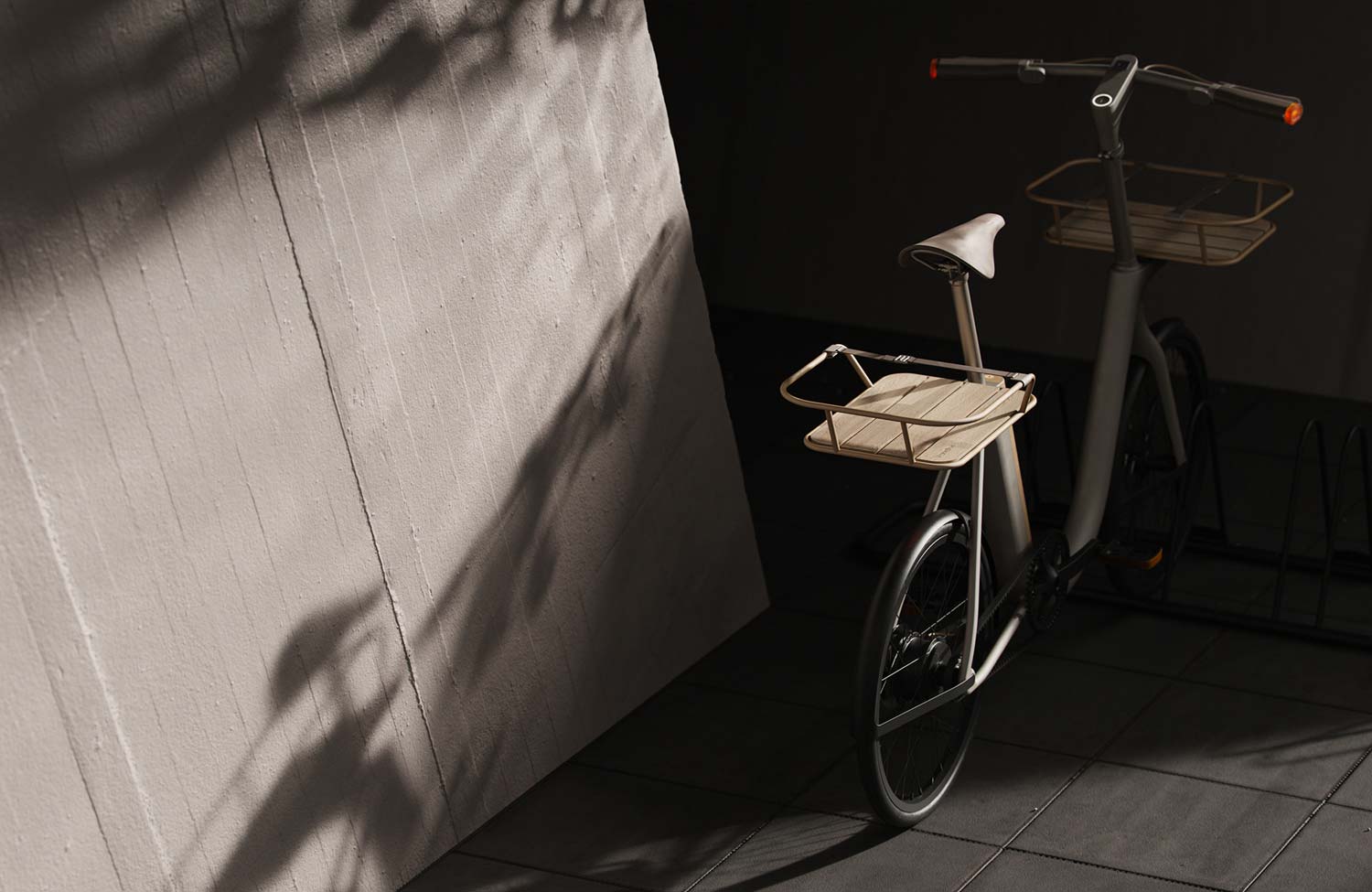Actually, Layer Design’s team from London works on product designs on behalf of renowned brands such as Bang & Olufsen, Panasonic or Airbus. Not so with this project, however: the e-bike called Pendler was created by Layer itself and represents its vision of the future of an urban e-bike.

Pendler comes with several modular, detachable accessories. These clip-on racks at the front and rear allow users to carry groceries and luggage. On the handlebars, a docking station provides safe and easy access to the smartphone while riding.
Thanks to relatively small 20-inch wheels, a compact wheelbase is achieved — so the Pendler e-bike should also be easy to transport on public transport. This is also helped by the foldable pedals and the handlebars that can be rotated by 90 degrees.



Layer does not provide any concrete details about the electric drive. Judging by the photos, however, it is a singlespeed drive with a hub motor in the rear wheel. The power is transmitted via a toothed belt, the battery is located at the front of the seat tube and is removable. Details such as the integrated lighting system with turn signals in the handlebars and mudguards complete the equipment.



Layer Design’s Pendler e-bike is an interesting study for a compact urban bike. However, you won’t find any major innovations here. The bike looks a bit like a mixture of a Cowboy C4 (battery integration, mudguards, drive system), IKEA Sladda (rack look), Schindelhauer’s ThinBike (compact tires, folding pedals, rotating handlebars) and the current Magic Bike study from Decathlon (rack system, turn signals).
Whether the bike will make it from a study to a finished product seems unclear. Layer is likely to have initiated this project primarily for self-promotion in order to generate attention for itself. However, it is also conceivable that a bicycle brand will take up this concept and make it ready for series production.







